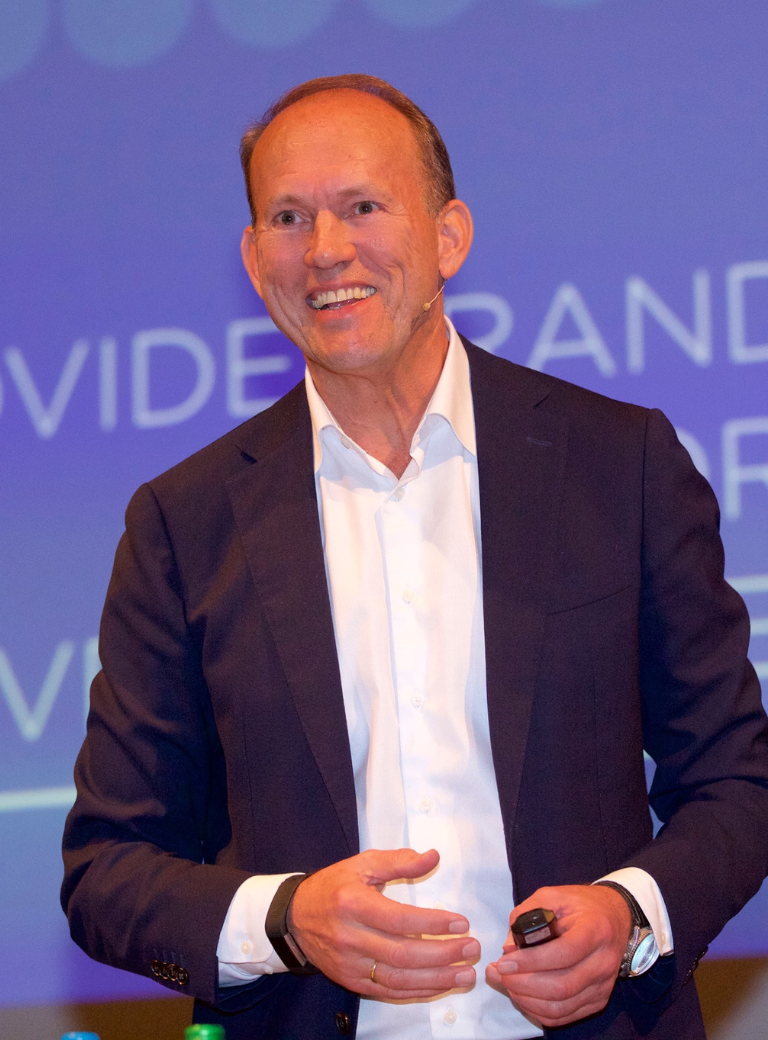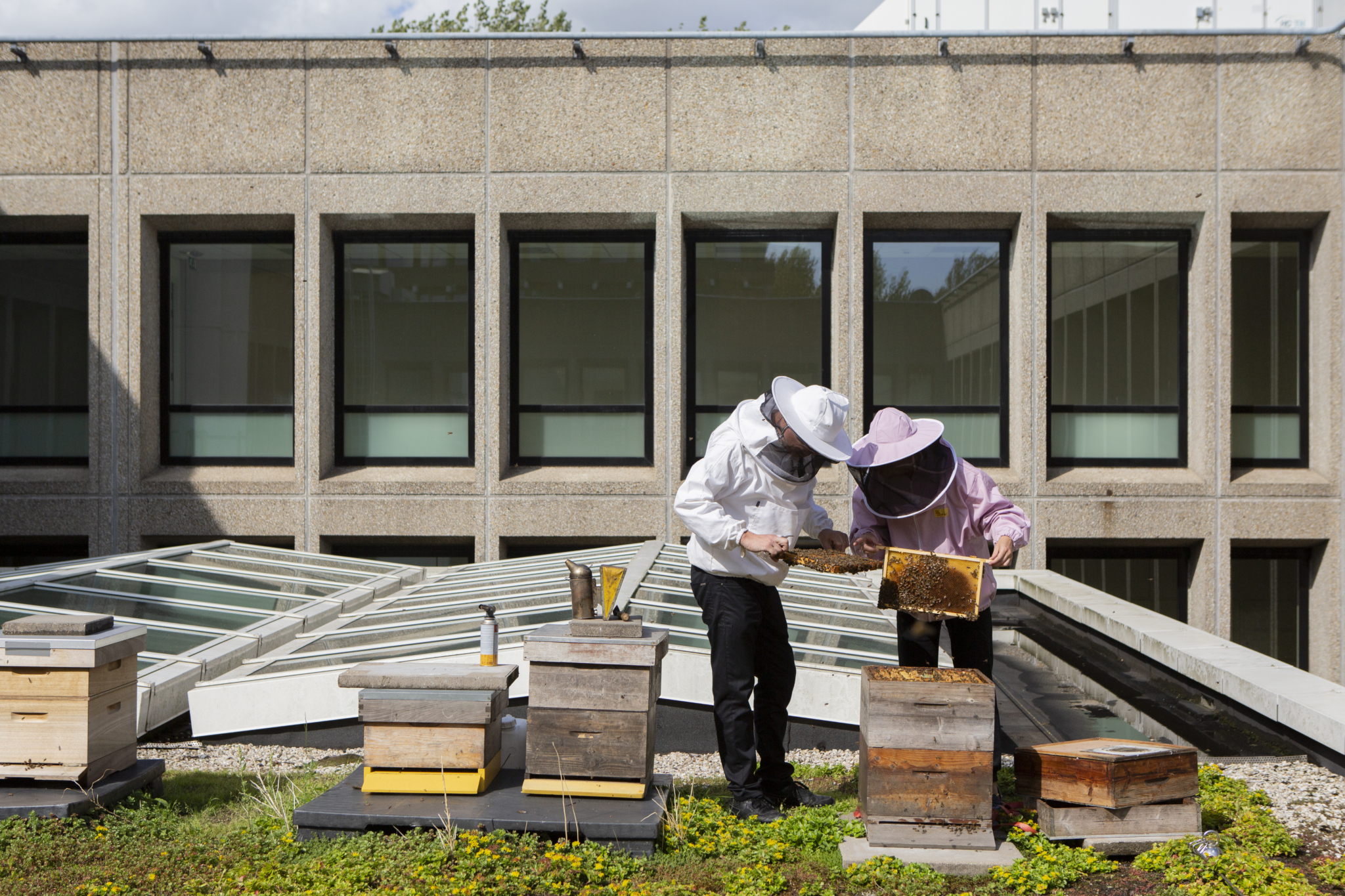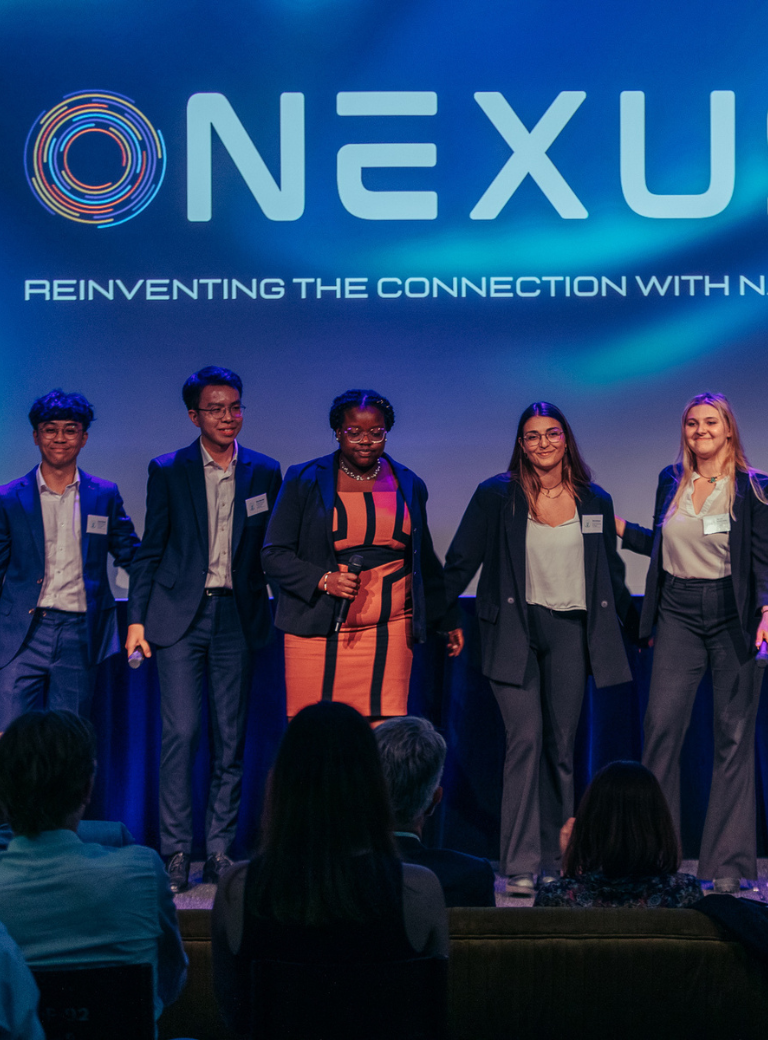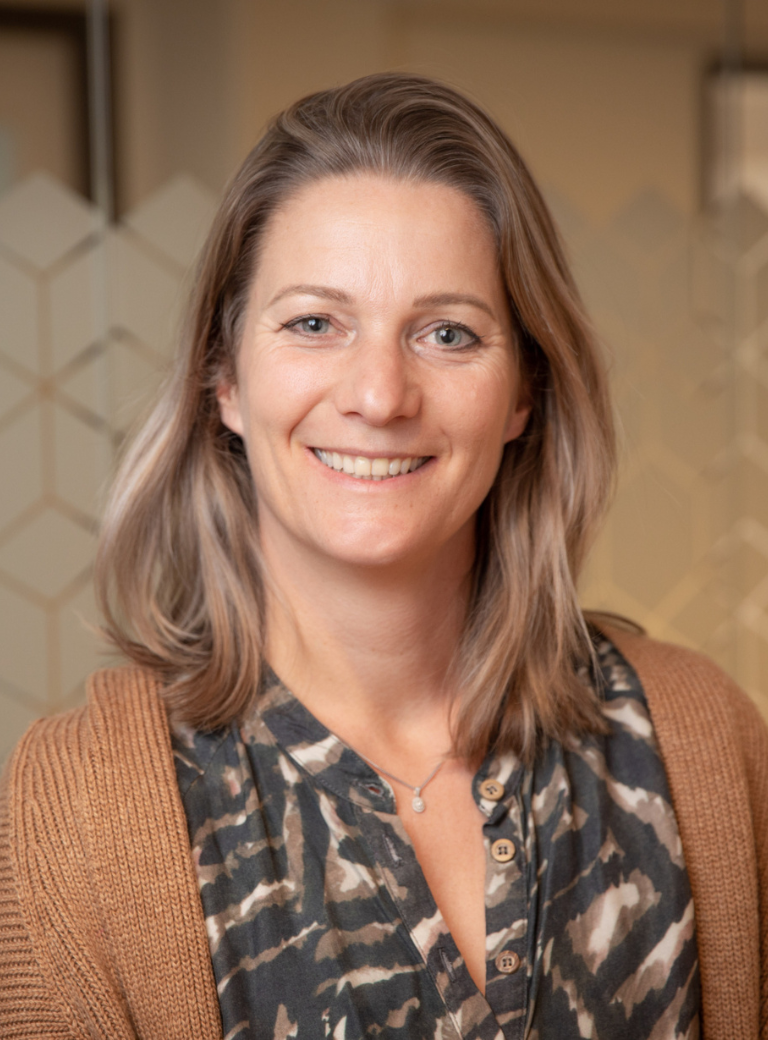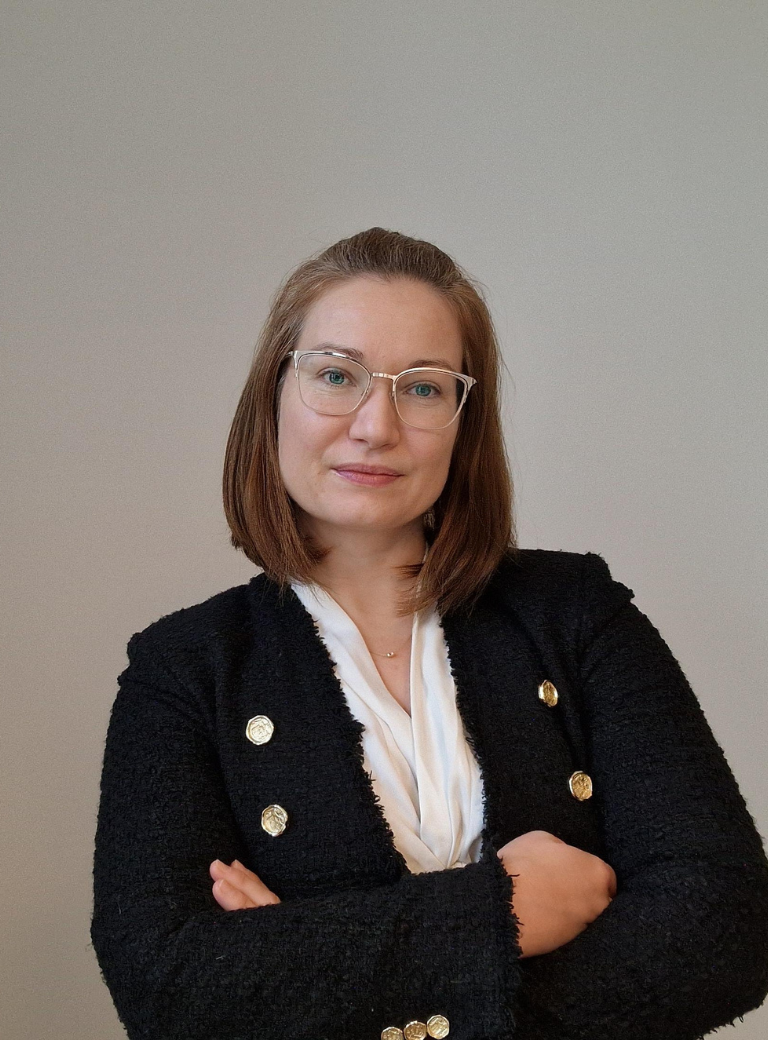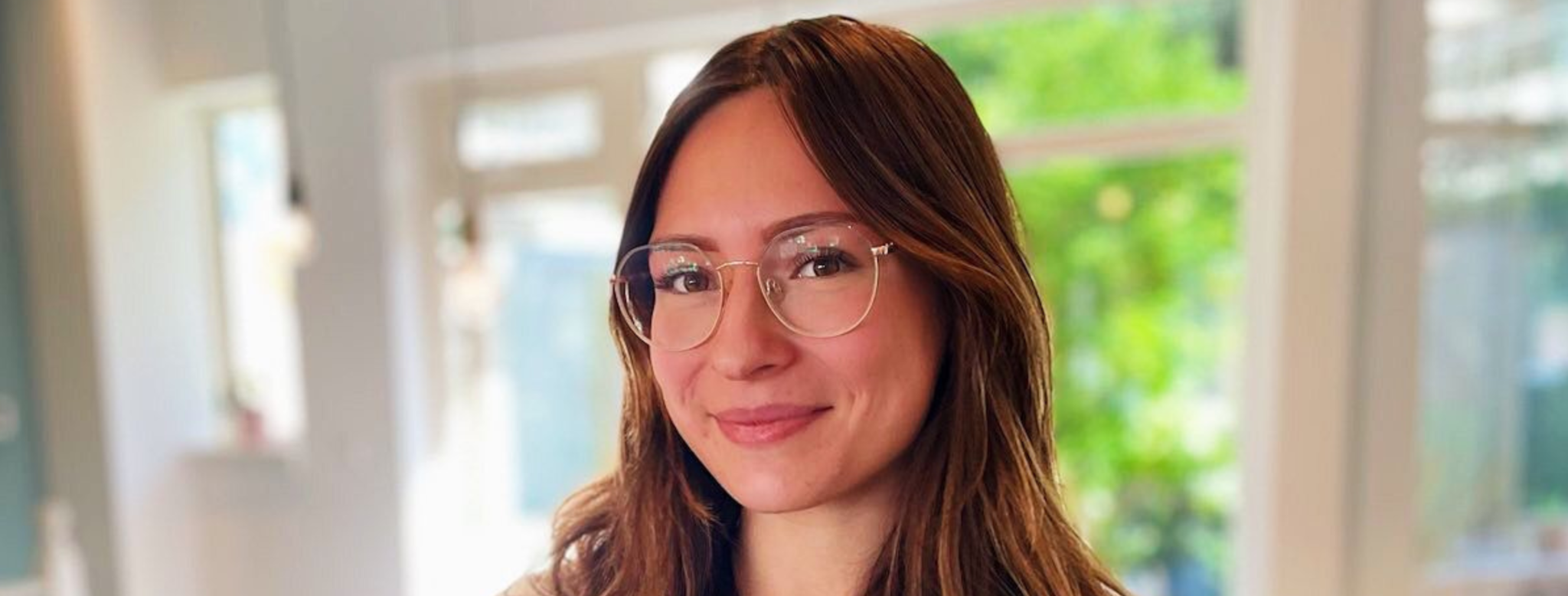
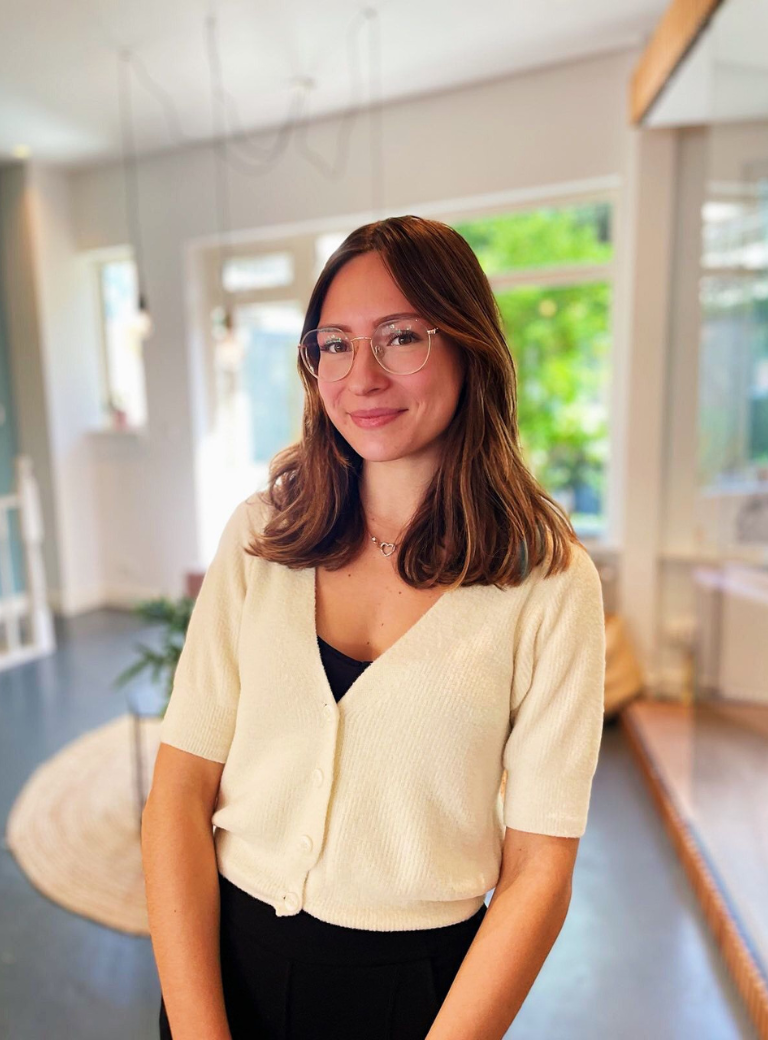
Navigating Challenges and Opportunities: A Reflection on Four Years with the Future of Hospitality
Original text by Marianne Kuiper, Efficient Hotel Partner/Music Meeting Lounge.
For four years, Meeting Magazine and Efficient Hotel Partner closely followed six students of Hotelschool The Hague (Amsterdam campus). Twice a year, they engaged in conversations with them about their ambitions, dreams, and future perspectives in the hospitality industry. In this article, Paul Griep, Director of Alumni & Industry Relations, shares his candid thoughts on the new generation (Gen Z) and offers insights into the future of the industry. Additionally, we look back and forward with the students themselves.
A lot has happened in the last four years. Tom transitioned to entrepreneurship after the first year, while Sam had to reluctantly pause her studies in the final year. The COVID-19 crisis disrupted a significant portion of their academic journey, demanding exceptional resilience and adaptability. Disappointments piled up, and for a long time, anger, and doubts took centre stage. However, these students didn't let setbacks deter them.
Despite all the challenges, Sam, Marie, Fauve, Mark, and Razvan popped the champagne this year as they successfully graduated.
Gen Z
There's been much said about Generation Z, to which these students belong. They are articulate, socially conscious, open to change, seek work-life balance, and consider diversity and inclusivity as inherent values. Alongside these positive traits, they're also a generation heavily reliant on technology, attached to their smartphones, concerned about the future, and under significant social pressure. Social media brings them closer, yet it also contributes to detachment. It's widely known that many grapple with mental health issues. How do these students view various challenging issues, and how did they experience this last year of their studies? Engaging conversations revealed surprising answers from different perspectives, ultimately showcasing the resilience of these graduates amid the chaos of recent years.
Candy Store
Paul Griep has been at Hotelschool The Hague for thirteen years. What differences in conversations with students stand out to him the most? With a concerned expression, he begins to share:
"This generation suffers significantly from overstimulation. It starts as soon as they wake up. Social media channels are checked, 101 WhatsApp messages are answered, and they absorb all the news online. This is all before their day has even really begun. The mental pressure is much greater."
Paul Griep, Director of Alumni & Industry Relations at Hotelschool The Hague

As an example, he mentions that not long ago, a graduate would take around ten years to shape their career and secure a management position. In today's time, it's roughly three years, and preferably even faster. Paul gives an example, "One of the major hotel chains offers a management programme where after two years you secure a prominent position. This programme used to be highly popular with our graduates. But now, there is no interest in this. It's challenging to excite recent graduates for this unique opportunity. For the next generation, two years is too long. When this chain made this same offer to three students from a much less affluent country, they spontaneously burst into tears of happiness. Do you see the difference?" Paul continues, "This generation has been raised quite prosperous and has experienced little adversity, especially in terms of work. They find themselves in a 'candy store' and can easily make certain demands. It sounds like a luxury problem but is not as luxurious as you might think. Because if you climb the ladder too quickly, you can fall hard, and too many choices are not always as pleasant as it seems." Especially considering that the current graduates of Hotelschool The Hague end up working in many different industries, meaning more doors open than ever before.
Overworked and Underpaid
Alumni can effortlessly enter the workforce, but the reality is that more and more of them opt for jobs in other industries where they can work fewer hours and receive better pay. The ongoing labor shortage in the hospitality industry since the COVID-19 crisis is alarming. Paul emphatically repeats a few times, "Something needs to happen. This is the result of the low margins versus high fixed costs that the hotel and events industry has struggled with for years. People have been underpaid and overworked. The shortage is particularly noticeable in service-related staff such as service, kitchen, and housekeeping employees. Innovation is needed quickly and intensely; processes need to be simplified and automated. This new generation compels us to initiate change and is very consciously engaged in it. A recent development, automating bed changing, is a beautiful and encouraging example of this."
Lost Talent
This leads to another topic that Paul wants to highlight. "There are so many young people who do not have the opportunity to study. That is distressing because it means we are losing a lot of talent. Talent that we desperately need."
In 2014, Paul initiated The Sustainable Hospitality Challenge, a global competition between hotel schools where student teams compete. They are challenged to develop a plan for innovative and sustainable solutions to improve the hospitality industry and our planet. They get the chance to present their plans to the top leaders in our industry, who can then actually implement their projects. "This challenge has become so successful over the years that I am practically working on it full-time."
Champagne with Tears
The graduation ceremony is the ultimate highlight for every student. Or isn't? Conversations with the students and their classmates revealed that this day was quite emotional for many. On the one hand they were celebrating the hard work it took them to receive this diploma, on the other hand it marks the end of their 4-year study, where they build lifelong friendships and became part of a community. Not only that, but such ceremonies also come with personal struggle. One student wrote a letter to his divorced parents asking them not to come. He can't bear the tension between his parents. Another student, also due to a divorce, lost contact with his mother. Only his father came with his new girlfriend. Sad were the stories of students who only invited their friends because their parents couldn't come for various reasons. All sadness aside, according to Paul, this generation is going to make it happen, turn the tide. These resilient graduates will make the best of it!
Sam: Study on Hold
While her fellow students are busy graduating, celebrating, and launching their careers, Sam's world is currently at a standstill. Some time ago, she received the sad news that her father was terminally ill and didn't have much time left. She decided to go back to her parents in Spain this summer to support them and paused her studies. Her father has since passed away. We understand her choice to spend her time with her mother, sister, and herself to cope with this loss.
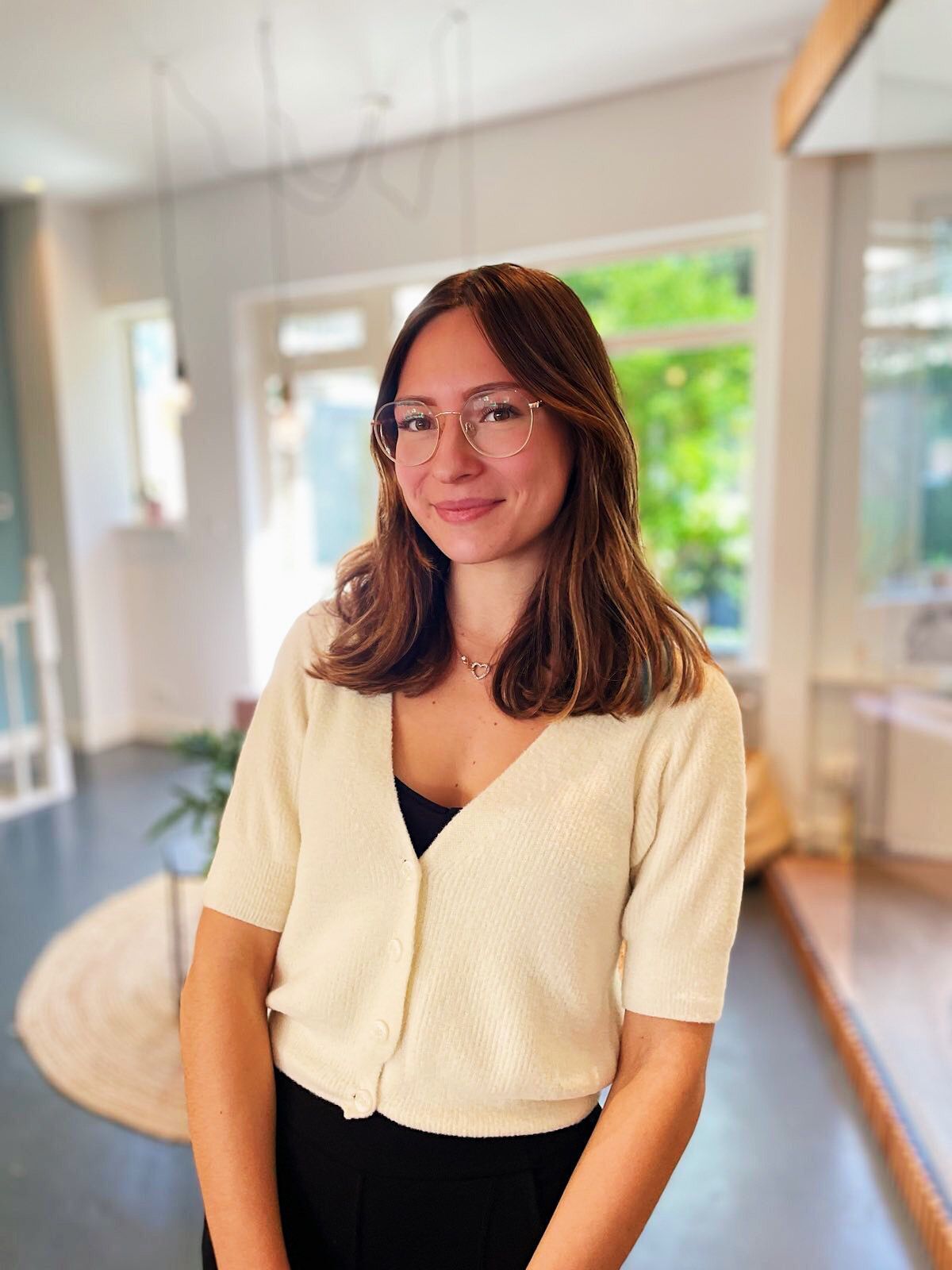
Marie: "It's okay not to know your exact path yet"
From the Philippines, the originally French Marie came alone to our national capital. Lugging two massive suitcases, she checked into the campus in Amsterdam and embarked on the great adventure. At that time, she was assigned a room with Sam from Spain, and the two became close friends immediately. During the COVID-19 crisis, she lived with her grandparents in the south of France. In early April, she graduated, completing her thesis, the first of the group, with excellent grades. Her mother and two brothers came over to witness the ceremony of her graduation. A beautiful and emotional moment.
Did she use AI for her thesis? "No, I certainly see the benefits of Chat GPT, but I didn't use it myself. I find the accuracy far from optimal. Besides, the rapid development somewhat scares me." Since last year, Marie has been living in The Hague with her Dutch boyfriend. Marie sighs. "It seems so easy, but I find it difficult to find a good job. The study was in English, everyone here in The Netherlands speaks English, so there was essentially no need to learn the Dutch language. But now I'm hitting a bit of a roadblock. I'm looking for a marketing job where I can use my creativity in social media and content creation. Unfortunately, I've been rejected a few times because my Dutch language skills are not good enough. So, now I'm going to work on that, haha, with my boyfriend as my teacher at home."
Marie was 18 when she chose Hotelschool the Hague for her studies. What has this study brought to her as an international student? "I have undergone tremendous personal growth, and learned a lot; this study has certainly instilled a certain level of discipline in me. Since we are offered such a wide range of subjects, I sometimes missed the ‘deep dive'. I have also realised that I might not join the actual ‘hotel industry’, but I have come to love it." How does she view her future and that of her own generation? A long silence follows. Then she replies, "It's okay not to know your own exact route yet. I prefer to live in the moment. Meanwhile, I've experienced periods of great mental stress in the past four years due to COVID-19, and I need to recover from that to be able to go all in later. That's also what I see around me."
"I have undergone tremendous personal growth, and learned a lot; this study has certainly instilled a certain level of discipline in me."
Marie Hussenet
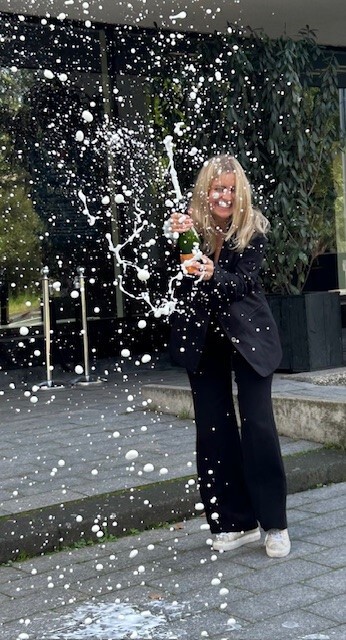
Fauve: "I'm solving the puzzle of my future"
Saturday 4 November was the day Fauve put on her black gown and her graduation hat with red tassel. Fauve also successfully defended her thesis. The first thing she did after? Taking a picture spraying champagne in front of the campus. This was followed by a cozy dinner with her group of friends from Hotelschool and some colleagues from the Conservatorium Hotel. She completed her management internship at this famous five-star hotel, where she acted as the link between the head chef, sous-chef, and the rest of the kitchen staff. This allowed her to combine her passion for fine dining with learning and implementing management skills. "That was ideal. I enjoyed it immensely and was immediately offered a job. I now work there full-time and, in the meantime, am solving the puzzle of my future."
Fauve wrote her thesis on the HR side of Generation Z. What they want, how to engage and attract them, and how to keep them at the workplace. Based on her own experiences at various restaurants (Rijks, NENI, Ron's Gastrobar, De Klepel) where she had part-time jobs during her studies, she has a very specific opinion on this. One of the solutions she proposes is the 'comfort conversation.' Fauve explains, "You need to provide (new) staff with a comfort zone so that they feel welcome and needed. Then you must keep your finger on the pulse and check at least monthly how things are going, whether someone is happy, what issues are at play, what wishes there are." During her internships and part-time jobs, she discovered that conflict mediation suits her well. That's something she wants to further develop. "There are plenty of conflicts in the workplace. In the kitchen, the workload is so high that tempers flare, literally and figuratively. I find it a challenge to maintain optimal balance in a team." What does the puzzle of her future look like? "There's a lot of choice now. I could choose blindly. But too many options also cause stress. Another major disadvantage of the current labor market shortage is that there is so little stability. People come and go. Teams constantly fall apart. Are things not going well for a while? Then quitting is easy because, well, there's plenty of work.
In any case, I want to be consciously chosen for a position. I want to feel the tension of the job application process. Will I get it or not? Two of my friends recently went through as many as three rounds and really had to make an effort to get the job. That's satisfying because you will feel like it’s a personal achievement, and not just because they are in desperate need. Our generation wants to feel like we have earned it, the euphoria will be great!”
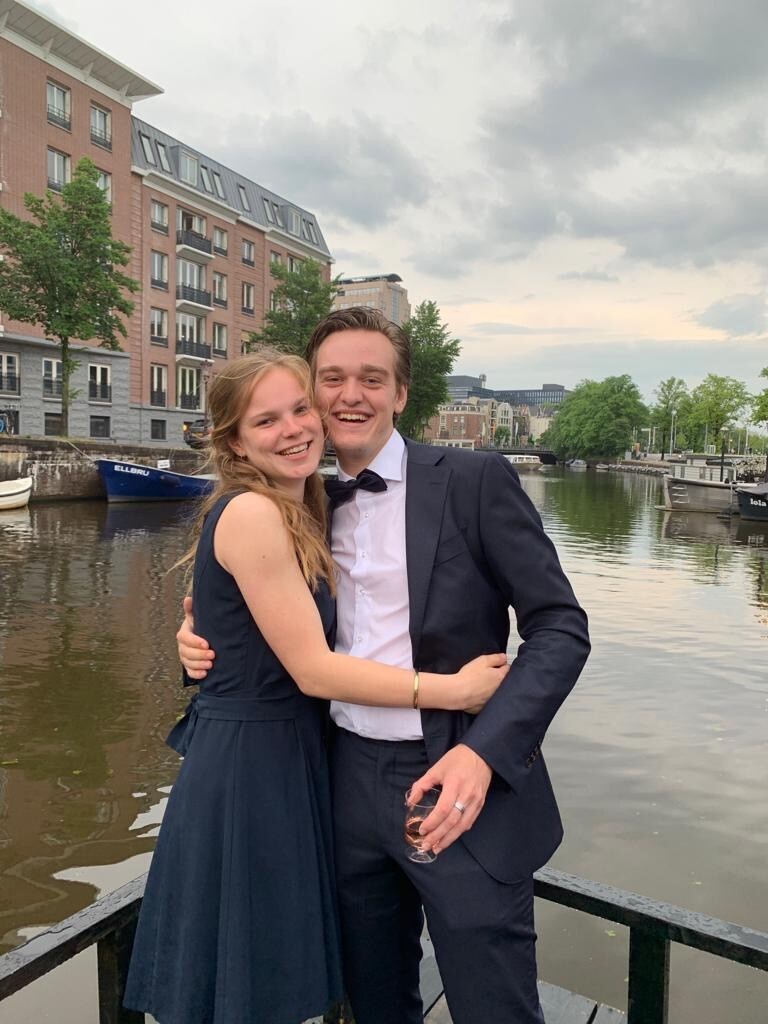
Mark: "I've started looking at things differently"
As one of the few, Mark had a clear dream during our interview in the first year. He wanted to become the director of a classic five-star hotel. Now, things have changed. For his management internship, he chose to work at Bartack, where he became a manager and developed a business plan for his thesis. Why did things go this way, and why did he forgo his dream for now? Somewhat hesitantly, Mark says, "I was only seventeen when I started this study, and due to everything that happened, I matured quickly. Due to the COVID-19 crisis, I missed my dream internship. I was really disappointed about that. But I also started looking at things differently. My father fell into a depression, and this had a huge impact on our family. Because of this, I started thinking about what is truly important to me. And honestly, I don't know what I want yet. I feel there are many more opportunities ahead and I am curious to see what's next. I admit, I could have challenged myself more. But does that really matter?"
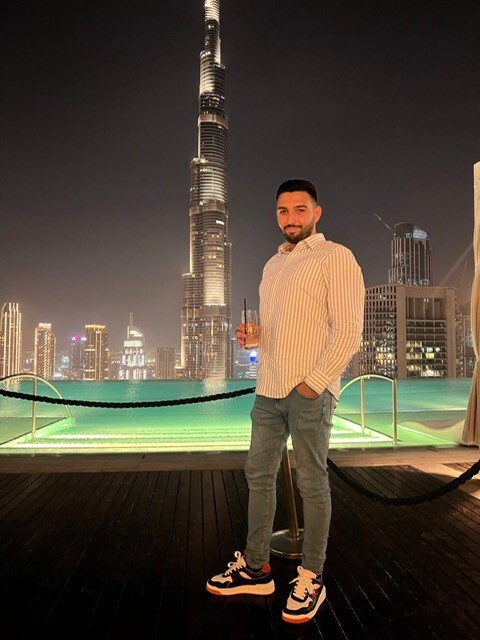
Razvan: "It's about who you truly are"
Razvan, hailing from Romania, experienced the past year as a rollercoaster. Opting for his final internship in Dubai, he joined the luxury Bulgari Resort as a PR and Marketing Coordinator. The demanding role meant a minimum of nine hours of work each day. Dubai, a melting pot of cultures, sees new restaurants opening up weekly, catering to diverse culinary preferences. The focus is on exceeding guest expectations in the city where guests are often demanding and accustomed to luxury. Both cuisine and architecture boast a sky-high Instagrammable appeal. "It took some getting used to; Dubai indeed offers a different form of hospitality. The competition is fierce."
Despite an ambitious impression, Razvan's future doesn't lie in Dubai. "Dubai is ideal for a career kickstart, with its worldly atmosphere and diverse nationalities. However, I won't go back. There's no social life and the outdoor heat limits activities. Life primarily unfolds indoors, where air conditioners work overtime." He booked a ticket to Romania, where his father runs an interior design business. While his father still hopes Razvan will join the business, Razvan envisions a different future and returned to Amsterdam. The city has captured his heart — the place where he feels most at home. "I love the relaxed atmosphere, lifestyle, and culture here. Working in my father's business would be easy, but I don't feel challenged." Razvan has started at the Conservatorium Hotel in the marketing department, leveraging his experience from Dubai. This luxurious hotel near Museumplein, with room prices of around 1,000 euros per night, has a fairly similar target market as the hotel he worked with in Dubai.
The conversation, in Dutch with a mix of English words and phrases, flows smoothly. Razvan proudly mentions achieving language level A2 recently. His mother, who is a psychologist, taught him to manage stress from an early age. Despite these lessons, the competitive atmosphere in Dubai was overwhelming — 'not for him.' "Unlike in Dubai, here in Amsterdam, it's about who you truly are. I want to make a difference for others. Let's care more about each other; that's what I stand for and want to contribute to."
"I want to make a difference for others. Let's care more about each other; that's what I stand for and want to contribute to."
Razvan Dumitru
